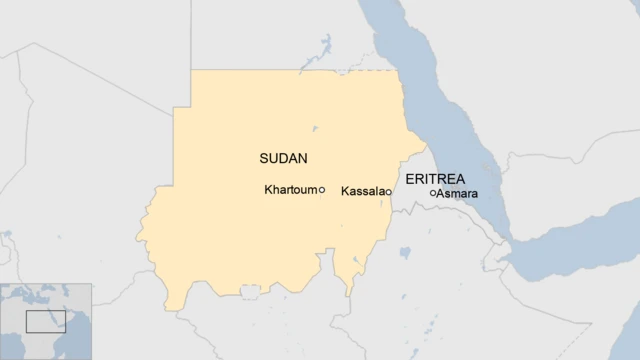Sudan: First plane carrying UK evacuees lands at Stanstedpublished at 14:38 BST 26 April 2023
A plane carrying people evacuating from Sudan has arrived in the UK.
Read MoreThis is an automated feed overnight and at weekends
A plane carrying people evacuating from Sudan has arrived in the UK.
Read MoreA British doctor who was shot is desperate to get out of Sudan, but won't leave his mother.
Read MoreStephen Flynn calls for more help for children in the Sudan war.
Read MoreThe UK has started evacuations - but not everyone is able to reach the airfield in Khartoum.
Read MoreA Sudan evacuee speaks to the BBC about how the UK government handled her evacuation.
Read MoreNesrin has not heard from family for two days and is waiting for them to confirm they are safe.
Read More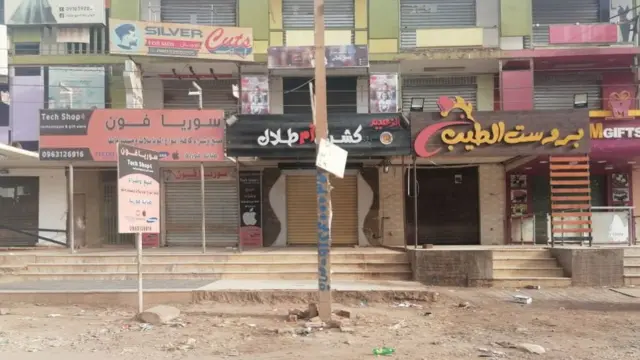 Image source, Getty Images
Image source, Getty ImagesKhartoum streets remain empty as rival factions continue to clash
Occasional sounds of gunfire are still reported in Sudan as the army and the paramilitary Rapid Support Forces accuse each other of violating the three-day ceasefire.
An Al-Arabiya TV correspondent has observed sporadic clashes between the army and RSF in some parts of the capital, Khartoum, this morning.
A section of local media say RSF vehicles have been seen heading to Khartoum's twin city of Omdurman - a key route for those being evacuated.
The RSF has just released a statement saying "a new revolution has now begun", vowing to defend the country "to the last drop of blood". It claims the army is attacking its bases, in a "clear violation of the truce".
For its part, the army, on Facebook, has warned the RSF against "exploiting the truce” by deploying more troops to Khartoum.
Cecilia Macaulay
BBC News
Nigerians seem to be the only foreign students left stranded in Sudan, one has told the BBC in a distressed call.
“It’s only the Nigerian students left here in Sudan, everybody has left, only us," the university student, who does not want to be named, said.
Other African nations like South Africa, Kenya, Mali, Ivory Coast and Uganda are among countries that have announced the evacuation of some of their nationals.
“It’s just so traumatising," she continued, adding with a broken voice that she hoped Nigeria would come for her and her classmates' rescue soon.
She said Nigeria kept "delaying" the sending of buses to evacuate them. She was expecting them to come on Tuesday, but they never arrived. She was then told by the embassy that the buses would pick them up at 06:00 local time today, but they hadn't as of 10:00.
In addition, the embassy said only five buses would arrive, but that was not enough to transport all the students, she said.
The people in her university hostel were also low on food supplies, she said, and were just trying to survive: "We are starving here."
UK national speaks to the BBC at Larnaca airport in Cyprus after fleeing conflict-hit Sudan.
Read More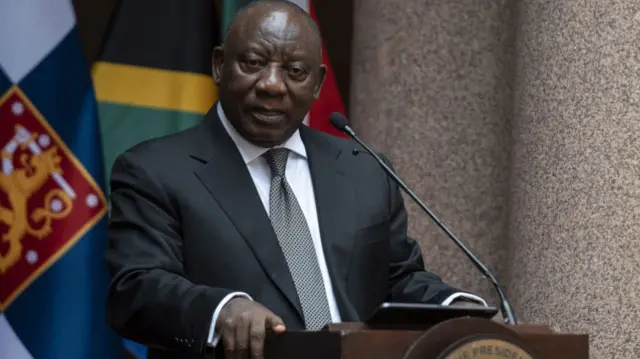 Image source, Getty Images
Image source, Getty ImagesPresident Ramaphosa had said that the governing ANC resolved to quit the ICC
The South African presidency has clarified statements from President Cyril Ramaphosa that the country would be exiting the International Criminal Court (ICC).
During a state visit by the Finnish President on Tuesday, Mr Ramaphosa said that the governing African National Congress (ANC) had resolved to quit the ICC over "unfair treatment".
However, the presidency said in a statement , externalon Wednesday that regrettably, Mr Ramaphosa had made an error.
It said the country remains a signatory to the Rome Statute.
The South African government is under pressure to take a decision on Russian President Vladimir Putin, who is due to visit the country later this year.
The ICC has issued a warrant for his arrest in connection with the Ukraine conflict.
Britain's ambassador in Sudan is speaking to warring parties in the country ahead of a fragile ceasefire ending at midnight.
Read MoreSoaring prices and widespread unemployment are forcing Zimbabweans to seek new ways to earn money.
Read MoreA family from Glasgow tells the BBC about their perilous escape from Sudan to Egypt.
Read MoreMore RAF flights are expected overnight, as the military attempts to get hundreds out of the country.
Read MoreA journey through the once-vibrant capital city of Khartoum after fighting broke out in the country ten days ago.
Read More Badariyya Tijjani Kalarawi
Badariyya Tijjani Kalarawi
BBC Hausa, Abuja
My daughter is a student at Sudan International University in Khartoum - but thankfully she had come home to Nigeria before the Eid holidays so was not there when the fighting broke out.
But my own relief was overshadowed as the clashes escalated and we got a true picture of events from other relatives and friends - I have family across Sudan.
My daughter was first to hear of the fighting, waking me up at 05:00 GMT on the day it began. I then started receiving phone calls, text messages and WhatsApp voice recordings of the situation on ground.
Some of my relatives were at the airport on their way to Saudi Arabia for the Hajj pilgrimage when it started. They had even boarded the flight, but were forced to disembark and the plane was set ablaze by one of the factions.
Stranded at the airport with little food and water to break their fast during Ramadan, they were left terrified and confused.
As we spoke over the phone, I heard the terrifying sound of bombs and gunshots in the background.
Thankfully they all managed to leave the airport and after sheltering for a couple of days with friends, they have now left the country for Ethiopia - helped by holding diplomatic passports.
But I have barely slept for more than four hours at a time since fighting broke out as other Nigerians are still in the country and many know that I work with the BBC.
Somehow they have found my phone number, some of them students through my daughter, and they have been calling to cry for help to be evacuated - something the Nigerian government says it is endeavouring to do.
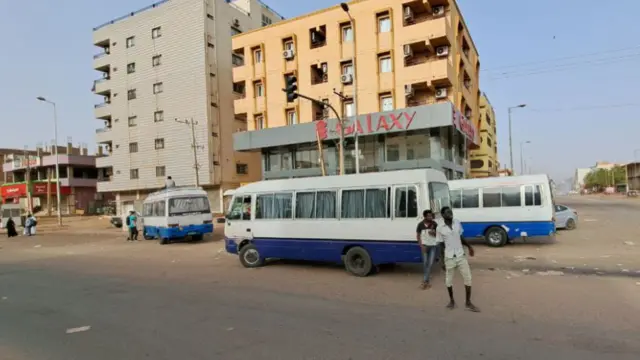 Image source, Getty Images
Image source, Getty ImagesPeople were able to move around Khartoum for the first few hours of this morning, but heavy gunfire broke out in two areas of the city later in the day.
Journalist Mohammed Alamin, viewing things from atop a tall building, told BBC Focus on Africa radio, that the fighting was in Omdurman (Khartoum's twin city) to the west and Bahri to the north.
A resident of the city told the programme that water had been restored in some areas and that the internet was also partially working.
But even though the banking system had come back online - allowing some to go out and buy things or leave the city - many were still too scared to leave their homes, he said.
 Alfred Lasteck
Alfred Lasteck
BBC News, Dar es Salaam
Peace talks between the Ethiopian government and Oromo Liberation Army (OLA) have begun on the Tanzanian island of Zanzibar, a rebel commander has confirmed to the BBC.
This is the first time the Ethiopian government is formally negotiating with OLA after years of conflict.
No details have been shared so far about the format of the negotiations or who will be mediating between the two parties.
The US, Norway, Sweden and Kenya are said to have been pushing the two sides to peacefully end the hostilities in the country’s vast Oromia region where the majority of residents are Oromos, Ethiopia's largest ethnic group.
The OLA has been fighting government forces since it split from a former rebel movement in 2018.
The talks come about six months after Ethiopia's government reached a peace deal to end a bloody two-year war in the northern region of Tigray.
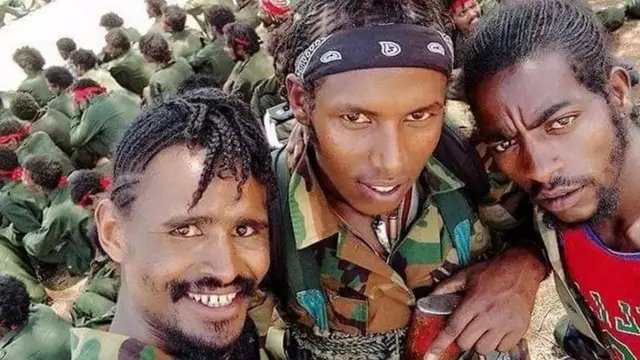 Image source, FACEBOOK/QE'EE OROMOO
Image source, FACEBOOK/QE'EE OROMOOOLA fighters have been projecting themselves as the champions of Oromo nationalism
Kenya has been gripped by the story of cult death as detectives continue to dig up mass graves.
Read More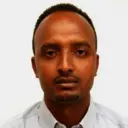 Teklemariam Bekit
Teklemariam Bekit
BBC News Tigrinya
Eritreans fleeing fighting in Khartoum have told the BBC they are being forced back home against their will.
Nearly 126,000 Eritrean asylum seekers and refugees live in Sudan, most having escaped political persecution and compulsory military service
An Eritrean woman who was heading by bus to Kassala says she never made it to the city in eastern Sudan, which is about 415km (260 miles) from Khartoum and where there is a large Eritrean community.
She told the BBC her bus was stopped on Monday at a security checkpoint before Kassala and all Sudanese passengers were forced to disembark.
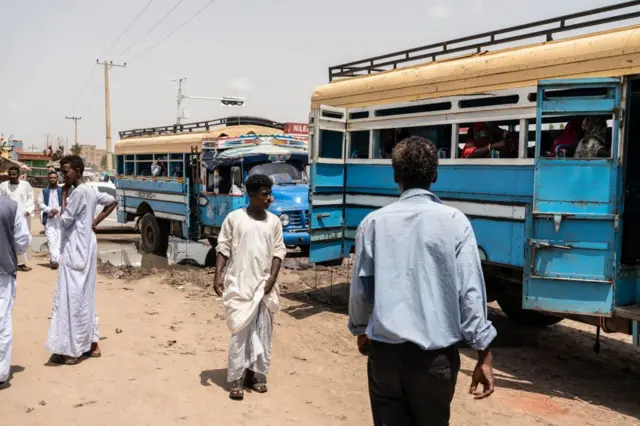 Image source, Getty Images
Image source, Getty ImagesKassala in eastern Sudan is home to a large Eritrean community
The Eritreans on board were then transported without their consent to the town of Arbata-Asher on the Sudan-Eritrea border, she says. There, officials are taking her details and insisting she cross the border into Eritrea, a one-party state and a highly militarised society.
This account has been backed up by others.
An Eritrean living in the UK said his younger sister, who had been in Sudan awaiting her asylum papers to move to Canada, was among them.
Many Eritreans in Khartoum are there without the correct paperwork and are now fearful for their future.
